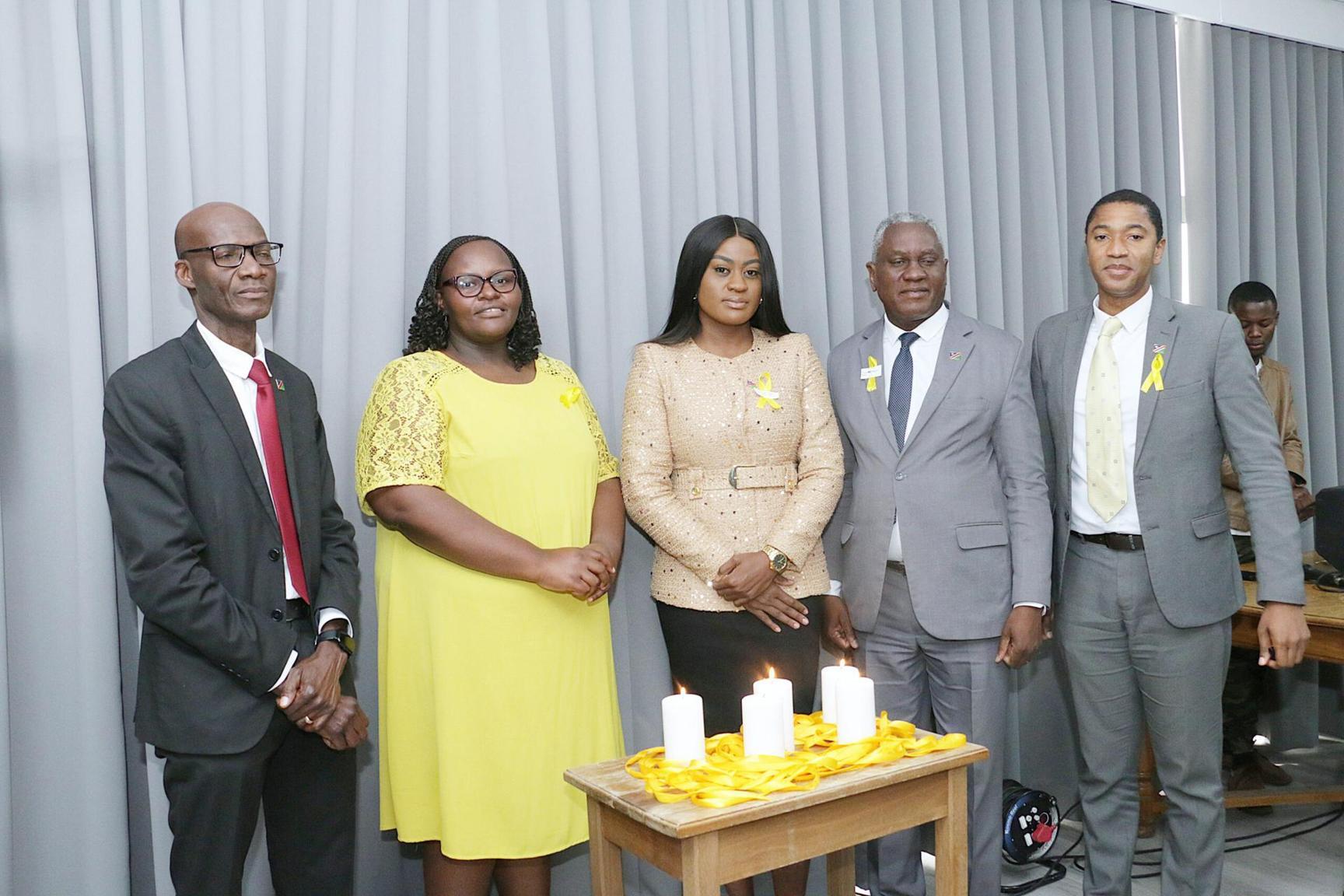Africa-Press – Namibia.
Minister of Health and Social Services, Esperance Luvindao, has urged Namibians to treat every person as being vulnerable to suicide, saying prevention starts with compassion and vigilance.
She made the remarks during the commemoration of this year’s World Suicide Prevention Day yesterday, observed under the theme “Changing the Narrative: Creating Hope Through Action.”
Luvindao said hopelessness is often the biggest driver of suicide and called on Namibians to break the silence around mental health and to “be our brother’s and sister’s keepers.”
“From today, we must treat every person as being in the high-risk group,” she stressed, adding that the stigma must be broken and discussions about suicide normalised.
“Through my office, I offer myself as a safe space for anyone struggling. The safe word is ‘hopeless’. If you feel hopeless, you don’t need to say anything else,” the minister said. “If we could carry a slogan where the public can see that I am a safe space, then more people will know they can reach out.”
Namibia continues to record one of the highest suicide rates in the region, with men and young people particularly at risk. The minister noted that between 16% and 20% of people who attempt suicide are likely to try again within a year, underscoring the need for early intervention and stronger support systems.
She also spoke candidly about her own struggles with anxiety during medical school, saying even health professionals are not immune to mental health challenges. She encouraged Namibians to seek help: “There is no shame in reaching out.”
Luvindao gave practical guidance on suicide watch, outlining what families, friends, and communities can do when someone shows signs of risk.
“When assessing someone at risk, watch for red flags,” she explained. “First, if they know how they would attempt it, that’s a red flag. Second, if they tell you they still want to go through with it, that’s another red flag. And remember, there are often signs: withdrawal, changes in behaviour, or unusual quietness are signals we must notice.”
Earlier this year, the minister tabled Namibia’s first Mental Health Bill, aimed at strengthening services and protections for people living with mental health conditions.
She also urged the media to play a constructive role by reporting more responsibly on suicide, describing it as part of health education.
“Reporters need proper training to cover suicide in a way that saves lives, and not sensationalise the loss of life,” she said. “It’s not enough to just write the story – every article should offer solutions, provide support contacts, and guide people where to get help.”
Executive director Penda Ithindi, highlighted that suicide is a major public health challenge, with more than 700 000 deaths each year globally. He stressed that each suicide has far-reaching social, emotional, and economic consequences, deeply affecting individuals and communities worldwide. Namibia, he added, is no exception.
The minister acknowledged that more needs to be done, saying the ministry takes responsibility. At the same time, she commended the Directorate of Social Welfare Services for its recent efforts.
She further urged all relevant stakeholders to promote health literacy and improve communication channels, including providing support in local languages through platforms like WhatsApp.
For More News And Analysis About Namibia Follow Africa-Press






